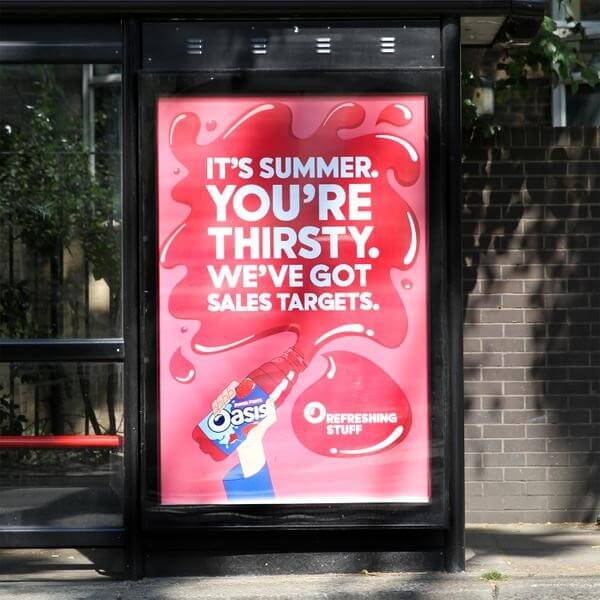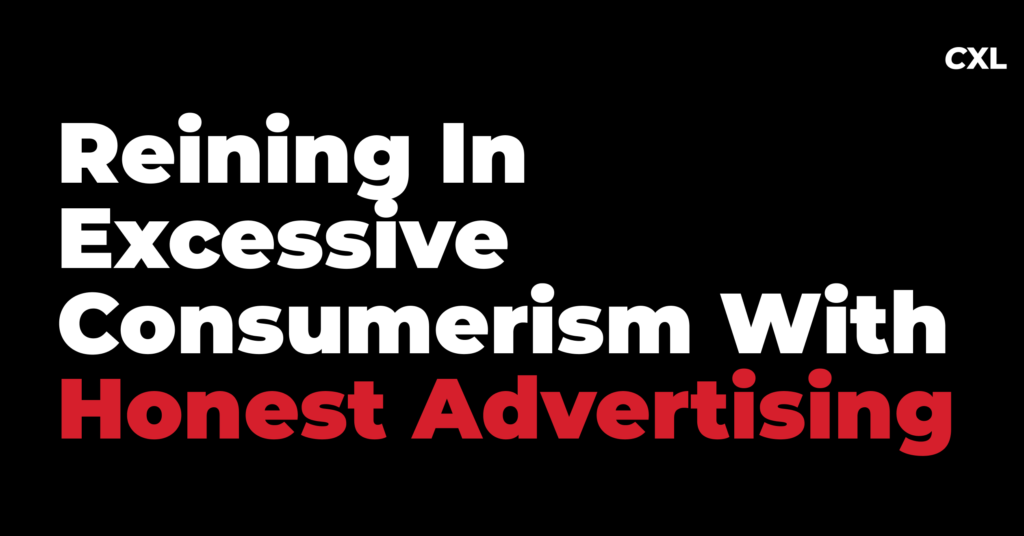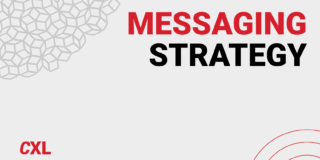Is advertising destroying the world?
Whatever answer you may land on, this is a question that the advertising industry may start having to reflect on more and more.
In this time of global change, the world is on the cusp, or already falling down into environmental and economic catastrophe. Many industries are taking an inward look, assessing the damage they are causing and how they can remedy it.
Table of contents
The “buy, buy, buy” mindset
The advertising industry is always telling customers to buy, buy, buy, yet overconsumption is one of the driving forces of climate change, as well as food, energy shortages, and poor mental health.
The advertising, marketing, and PR industries are so focused on consumption that it may seem difficult, self-harming, and illogical to take a stand against those principles of ‘buy, buy, buy’.
But imagine if there was a way this could happen, an example to follow—what if advertising was honest? then the next question becomes, realistically, is there any other choice?
Tackling overconsumption with honest advertising
Tackling overconsumption from within the advertising and PR industry is not simple. But the goals, at least, are simple: the industry has to help the world change how it consumes, what it consumes, and how much it consumes.
Honesty combined with creativity will be the blueprint for mapping out what is a huge shift in the way advertisers work. One of the key principles of honest advertising is that as well as scrutinizing each campaign for its strategic worth, marketing teams will start analyzing that same campaign for its environmental impact.
Holding businesses accountable
They can still do what they do best: give brands a voice, put across the benefits of products to users in creative ways, and carry out the strategic objectives of our clients.
But all the while, they will also be holding themselves to account and ensuring that they include an encouragement to reuse, to consider the need for a product, and to consider the environmental impact that a purchase will have within their messaging.
Because it’s not necessary or practical to eliminate consumerism—what is being talked about is trying to eliminate excessive consumerism, to introduce a gradual but impactful change in how people think about shopping, how governments think about shopping, and how companies think about selling.
Using the right messaging
Advertising is about messaging, and the power the industry possesses is in the words it chooses and how it presents them. Messaging has to be considered a major tool for tackling overconsumption.
It may seem counterintuitive, but the best marketers and advertisers are constantly trying to find ways of cramming lots of meaning and intention into sharp, snappy, and pithy campaigns. It must be possible with some creativity and application to sell at the same time as taking a stand against overconsumption.
Another obvious way the industry could start this initiative is by stopping all advertising, advocating, and sanitizing for oil companies.
According to Adweek, nearly 300 agencies and six major holding companies are currently servicing fossil fuel clients, and there is evidence that fossil fuels pose an existential threat to life on Earth.
Two examples in which ad messaging can still conduct its primary advertising function while also carrying social and environmental conscience in its DNA are Burger Joint and DNA Denim.
Burger Joint
While Burger Joint is still advertising its main product, the burger, the customer is being encouraged to think about lowering their meat intake. It is well publicized, after all, that excessive meat consumption is harming the planet.

DNA Denim
DNA Denim tells the consumer to buy a new pair and give away previous jeans they do not use, encouraging recycling the old clothes by giving them to new owners.

These two cases of honest advertising show there’s a way forward.
Excessive consumerism and less honest advertising practices don’t just harm the environment, they can harm society in other ways, such as:
- How people see themselves.
- How humans are obsessed with material possessions.
Looking at another example, you can see how the attitudes around advertising and shopping are hurting people.
Burago
Keeping up with the Joneses is an idiom that describes how we crave the same objects and possessions that our neighbors have to not feel left behind. By referencing this phrase, Burago shows off one of its products while making a real point about consumer culture at the same time.
On social media, people look at each other’s lives and share pictures and stories from their own – seeing and being seen through these curated snapshots doesn’t necessarily give an ‘honest’ sense of what lives are really like. But despite this, it’s easy to start obsessing over your own and other people’s online profiles, comparing yourself with peers in a way that becomes toxic.
Here, Burago encourages their customers to stop judging their self-worth based on comparisons with each other, or with famous wealthy individuals that many admire. The ad challenges the accepted culture that tells us people need ‘things’ to be happy or appear successful.

Brewery
There are lots of slightly dishonest ways that advertisers can make a product seem more desirable. For example, these days, with social media, image is very important for people, so if it seems as though having a certain product or drinking a certain drink will make them seem cool, it may convince them to go with that product.
Instead of leaning into that slightly off-color motivation for making a purchase, Brewery’s ad draws attention to the basic function of the product, which is that it tastes good.

Clicko
Shortages of goods and resources have become familiar occurrences in the world, and altering people’s mindset to restrict purchases to what is needed rather than what can be bought is a tricky but important undertaking.
Sales are often ways for brands to try and convince consumers to buy more than what they need, so tempering that compulsion with a reminder to consider necessity over value is a clever use of honesty.

Use the industry’s biggest strength to its advantage
This strategy of “Honest Advertising” should be very possible to work because it uses the strengths that the industry already has instead of asking advertising to be something it’s not. That strength is creativity and it can be seen in all the examples above.
Creativity has driven this industry to where it is now, and it also could be the path to minimizing the negative impact on the planet.
If advertisers can convince people to buy more, they can convince people to:
- Buy less.
- Buy differently.
- Buy responsibly.
And the same tools that made each business financially viable will be the same ones that now make them socially and ethically viable, just repurposed.
Rewarding creativity
The advertising and PR industry should be rewarding creativity that makes a positive change in the world. We need to reward campaigns that:
- Reduce waste.
- Encourage mindful shopping.
- Encourage reuse.
IKEA
IKEA is a great example of a company that deserves a pat on the back. Their campaign in 2022, told consumers that in Norway alone, over three million pieces of furniture are thrown away each year.
Unhappy with this waste, IKEA decided to collect all old IKEA furniture and resell it in their stores to new customers.

This thinking has led us away from other forms of harmful advertising in the past. Not long ago tobacco and cigarette advertising was widespread, now it is virtually non-existent.
By rewarding the people who make an effort, it’s possible to encourage radical and positive change to challenge some of the issues that the global community is facing.
Honest advertising doesn’t have to be bad for business
This could be the beginning of a shift within the industry where brands start adapting towards a focus on honesty and authenticity. That can seem scary but it doesn’t have to be.
Instead of advertising tactics that take advantage of people’s cravings or social norms, they could use strategies that focus on the positive parts of the product.
Where before they turned a blind eye to world problems, they could face up to them honestly and try to help.
Where questionable claims and hard-to-keep promises were once how marketers tried to sell things, the truth could now be the way forward.
And there are plenty of examples where taking a more honest outlook on advertisement and promotion has actually been good for business.
Oasis
Oasis broke the fourth wall, and the company speaks directly to the function and the intention of the business in this example, without using any sneaky tactics, but instead simply focusing on the quality of the product, which for many people would already be a known quantity.

Volkswagen
This classic advert for the VW Beetle shows how the concept of honesty and not trying to disguise flaws or negativity has the potential to completely reverse people’s perceptions of a product or a brand.
If VW had put out regular promotional material suggesting that the Beetle was considered a beautiful car, people at the time may have completely rejected it, as the perception was that consumers mostly considered it very ugly.
By embracing that and admitting it, it makes an amusing point. The advertisement itself is very eye-catching and people started to have sympathy for the aesthetics of the car, which had suddenly carved out a new position in the market for itself as a novelty.

There are many different ways honesty can be used in advertising to increase success, and the necessity for the industry to make this shift away from encouraging excess consumerism doesn’t have to feel negative for advertisers. In fact, it opens up more opportunities to be creative and experience success.
Conclusion
This is a classic case of a project that many see as impossible, but it comes down to a choice, and the growing expectations of consumers for brands to exhibit socially conscious values and align with their own beliefs means the market may start making that choice for businesses.
By simply taking a positive mindset and focusing on what each individual company can do instead of what it can’t, this very difficult-seeming mission could start to seem possible indeed very quickly. It’s a tall ask, but imagine the impact this would have on people and the planet.


